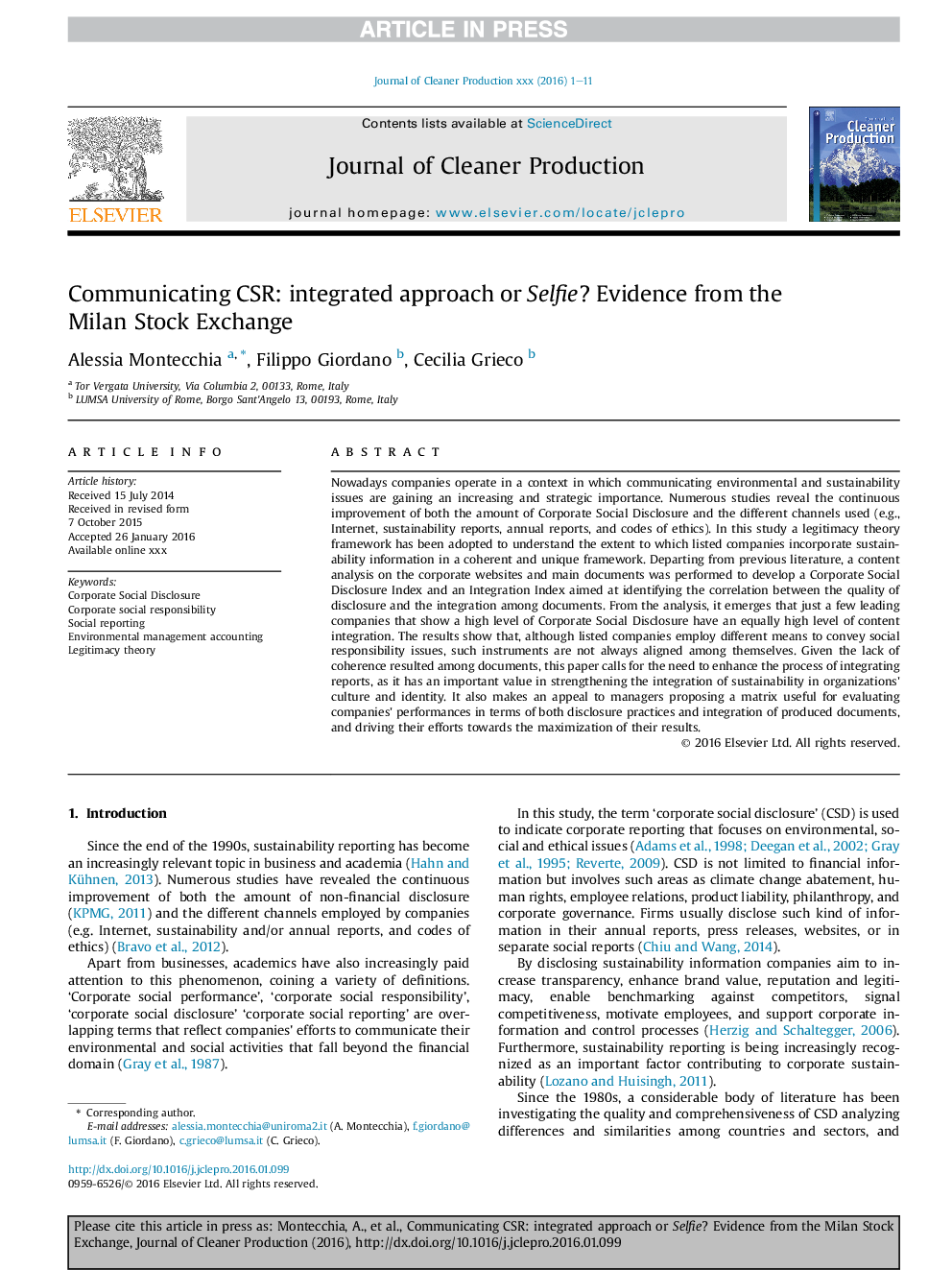| Article ID | Journal | Published Year | Pages | File Type |
|---|---|---|---|---|
| 5480673 | Journal of Cleaner Production | 2016 | 11 Pages |
Abstract
Nowadays companies operate in a context in which communicating environmental and sustainability issues are gaining an increasing and strategic importance. Numerous studies reveal the continuous improvement of both the amount of Corporate Social Disclosure and the different channels used (e.g., Internet, sustainability reports, annual reports, and codes of ethics). In this study a legitimacy theory framework has been adopted to understand the extent to which listed companies incorporate sustainability information in a coherent and unique framework. Departing from previous literature, a content analysis on the corporate websites and main documents was performed to develop a Corporate Social Disclosure Index and an Integration Index aimed at identifying the correlation between the quality of disclosure and the integration among documents. From the analysis, it emerges that just a few leading companies that show a high level of Corporate Social Disclosure have an equally high level of content integration. The results show that, although listed companies employ different means to convey social responsibility issues, such instruments are not always aligned among themselves. Given the lack of coherence resulted among documents, this paper calls for the need to enhance the process of integrating reports, as it has an important value in strengthening the integration of sustainability in organizations' culture and identity. It also makes an appeal to managers proposing a matrix useful for evaluating companies' performances in terms of both disclosure practices and integration of produced documents, and driving their efforts towards the maximization of their results.
Keywords
Related Topics
Physical Sciences and Engineering
Energy
Renewable Energy, Sustainability and the Environment
Authors
Alessia Montecchia, Filippo Giordano, Cecilia Grieco,
